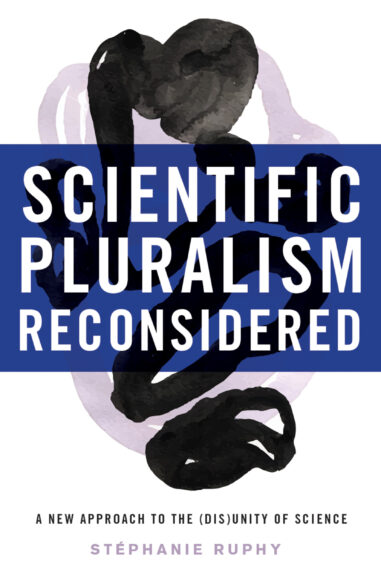

Hardcover $50.00
Request Exam or Desk Copy. Request Review Copy
Scientific Pluralism Reconsidered
A New Approach to the (Dis)Unity of Science
Ruphy has written a marvelously clear and tremendously engaging book that one could read over summer holidays and yet think about for years to come. By grounding philosophical discussion of scientific practice in cosmology and astrophysics, and using detailed philosophical arguments, Ruphy has set a high bar for what reflections on scientific pluralism should aim to achieve.

